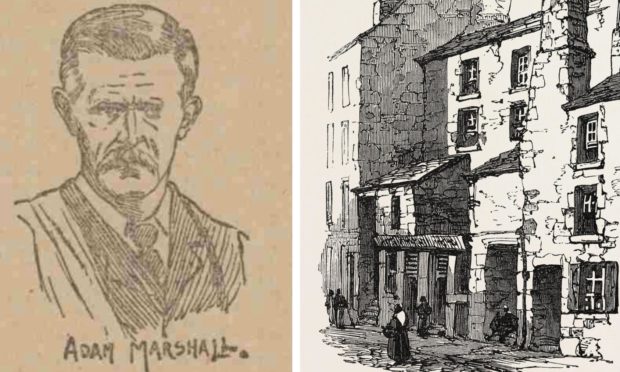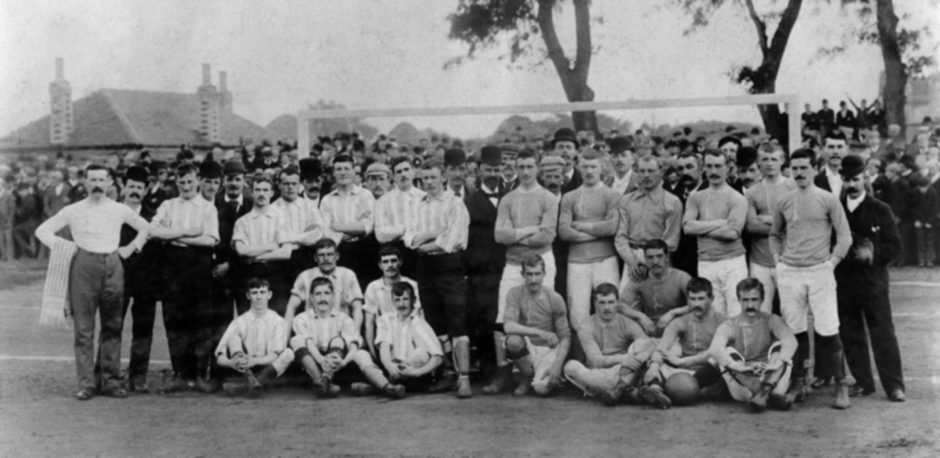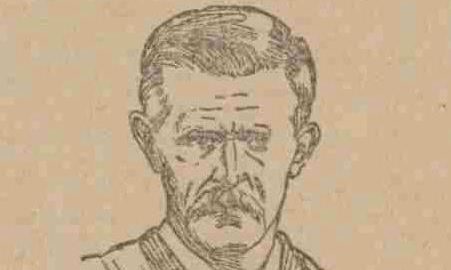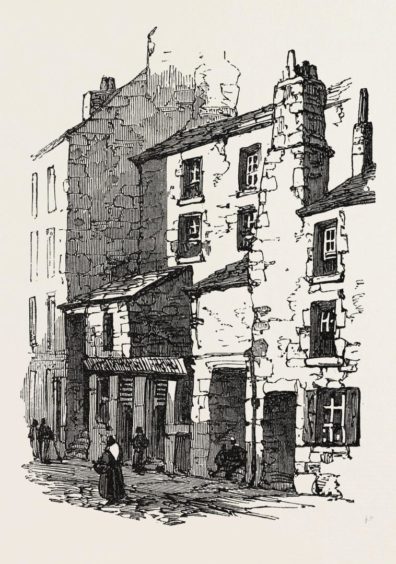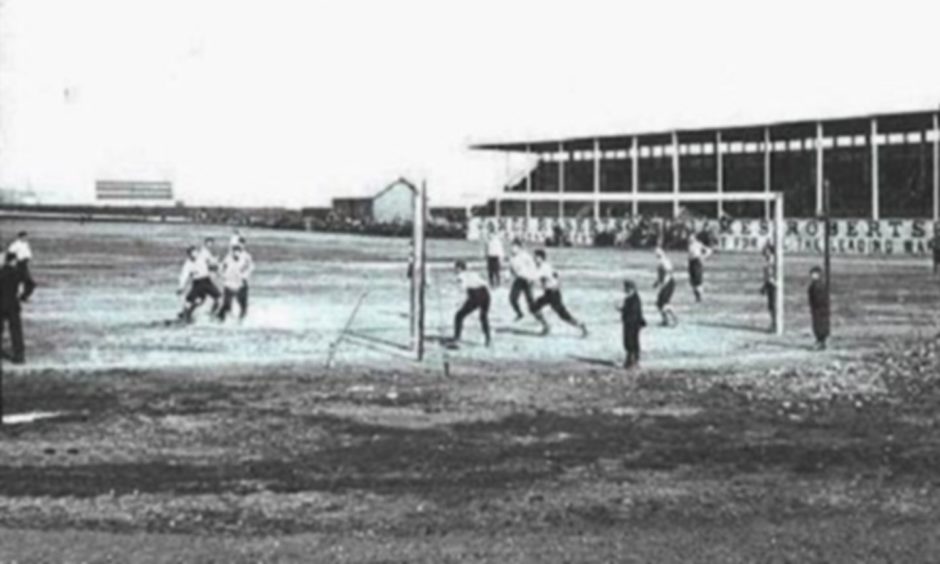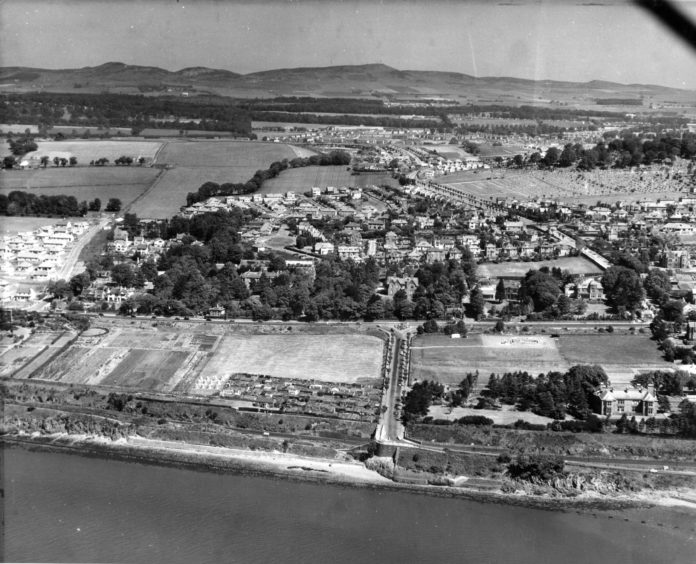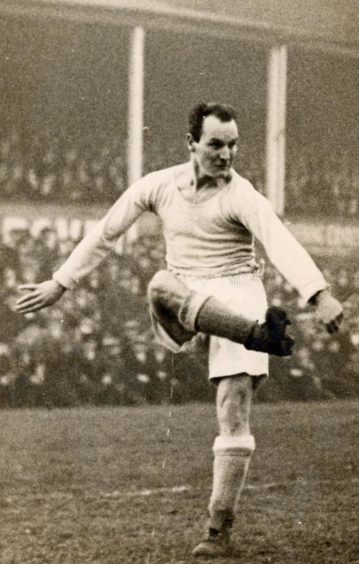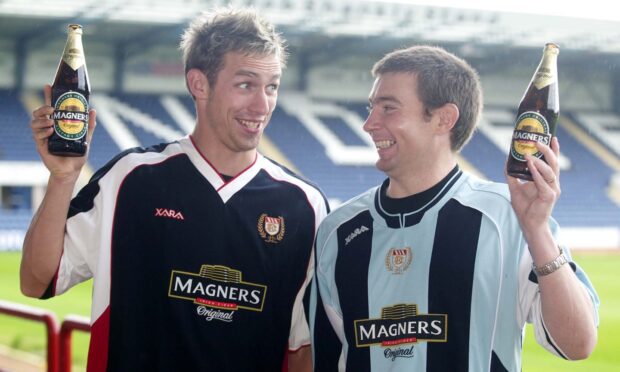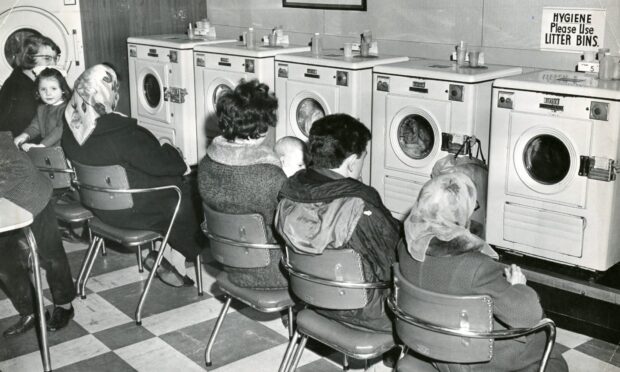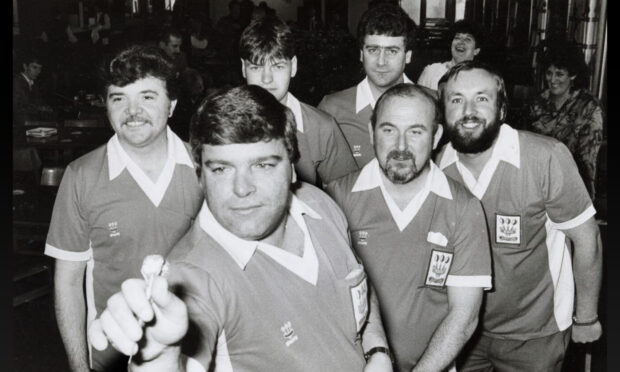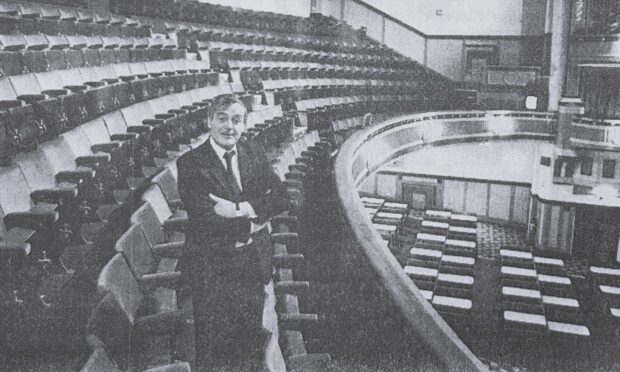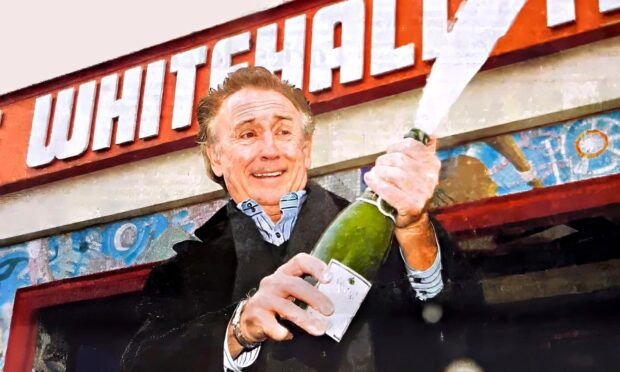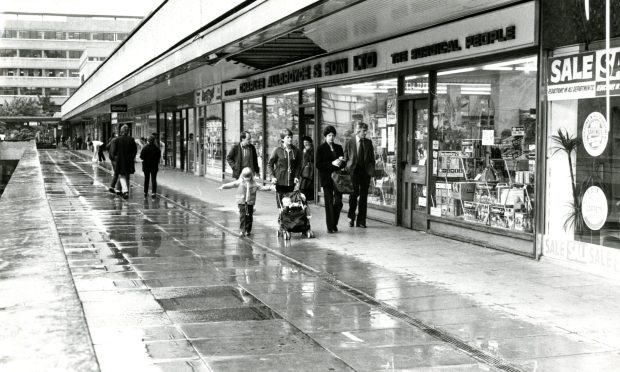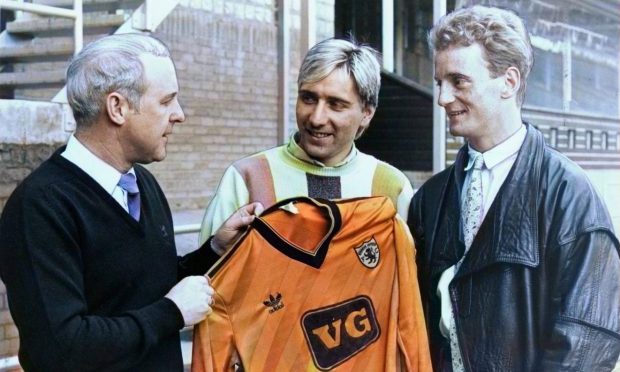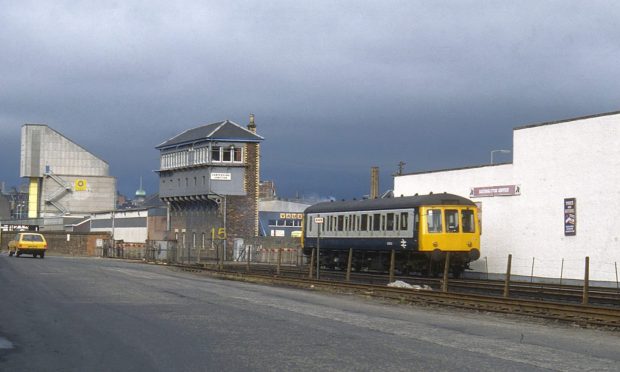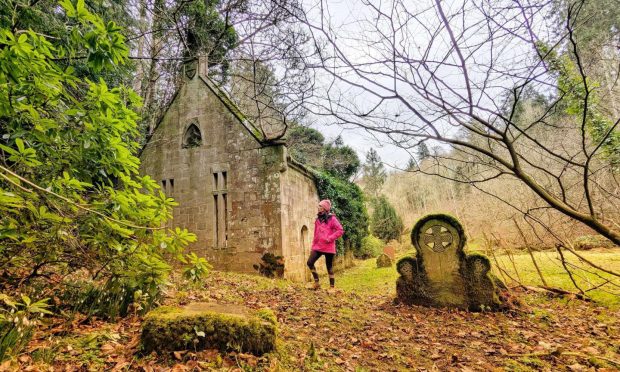All-round sportsman Adam Marshall trained Dundee FC’s Victorian stars before he died in tragic circumstances.
Marshall was found with serious head injuries at the bottom of a flight of stairs in the Overgate following a friendly match against Sunderland on April 13 1896.
But did he fall or was he pushed?
Who was Adam Marshall?
Marshall was born at Kincaple near St Andrews before growing up in Dundee after his parents moved to Lochee when he was a boy.
He showed a liking for athletics from a young age and spent much of his spare time at Rollo’s Pier where he engaged in all kinds of games.
Marshall was a mason to trade.
He competed in athletics at amateur and professional level for 30 years and also distinguished himself on the Highland Games circuit.
He occasionally went in for wrestling and once had a bout with the famous Scottish strongman Donald Dinnie who was regarded as Scotland’s greatest athlete.
Marshall started to work with football players and was the trainer of Our Boys before the club merged with local rivals East End to form Dundee FC in 1893.
Most of the squad which would play in the Scottish League was pulled together from the two amalgamated teams and Marshall was given the role of training the team when Dundee started life at Our Boys’ home ground at West Craigie Park.
Marshall was in the team photo when Dundee lined up for their first-ever league match and battled back from two goals down to earn a 3-3 draw against Rangers.
He boasted that he had one of the best trained teams in Scotland under his charge and Dundee finished eighth in Division One in their first two seasons.
Dundee were now playing at Carolina Port and would achieve a fifth place finish in 1895-96.
Marshall was in attendance on March 21 1896 when Carolina Port hosted the British Home Championship match between Scotland and Wales and Sandy Keillor became the first Dundee player to score for his country as Scotland ran out 4-0 winners.
Marshall was on the sidelines when Dundee travelled to England at the beginning of April to engage in a series of friendlies to maintain income.
Dundee returned from the English tour to play a Spring Holiday Monday afternoon home game against Sunderland and went down 2-1 in front of 3,000 fans.
How the tragedy unfolded
Marshall went into town following the match with some of the players.
The Courier said he was with them for the rest of the evening before they separated at 10.30pm and he was left to go back to his house in Ferry Road himself.
“However, he did not appear to have done so, for a few minutes after 11 he was observed in Overgate by a police constable,” the report said.
“His appearance did not warrant the constable taking any particular notice of him, but a few minutes later the officer was hailed from a window by a man who said he thought he heard a noise as if someone had fallen down the stair leading from the street to the tenement in which he lived.
“The constable at once went into the entry, and by the aid of his lantern he came upon Marshall lying at the foot of the stair, evidently the worse of liquor.
“The constable called the assistance of another officer, and together they conveyed the man to the Central Police Office, where he was locked up.
“He was allowed to lie for several hours, and as at the end of that time he did not seem to be recovering his senses, the officer on duty thought it prudent to send for Doctor Templeman, the police surgeon, to have the man medically examined.
“The doctor promptly responded to the summons, and a very casual examination was sufficient to show that the unfortunate man was seriously injured about the head.
“On the doctor’s suggestion Marshall was removed with all haste to the infirmary where he was admitted about eight o’ clock in the morning.”
He was unconscious when examined and it was found he was suffering from complete paralysis of the left side, a fracture of the skull, a one inch long wound at the back of the head, and bruising on the left side of the head.
Police investigation was launched
Marshall died at 1.20pm having never regained consciousness.
The Courier said there was “little doubt” Marshall had been trying to go down the stairs in the Overgate and “that in the darkness he slipped and fell backwards, sustaining the injuries which proved fatal”.
A police investigation was launched following Marshall’s death after suspicions existed that his injuries were not accidental.
The Courier said the facts went to show this was “without foundation”.
“In any event, the police information indicates that on Monday night, when seen in High Street, Marshall was considerably under the influence of liquor,” the report said.
“Reference had been made by some person with whom he was conversing as to the likelihood of his being dismissed, and Marshall, it is said, loudly proclaimed that he did not care what the committee might do, as he had managed to work his way before he had any connections with the Dundee Football Club, and could do so still.”
Norrie Price – author of ‘Up Wi’ The Bonnets! The History of Dundee FC’ and ‘They Wore The Dark Blue’ books – said Marshall’s wife had died several months earlier and now his death left his seven children as orphans.
He said: “There was shock and sadness as news of the tragic death of Dundee FC’s trainer, Adam Marshall, circulated in the city.
“This came in the aftermath of the club’s friendly against Sunderland, played at their home ground of Carolina Port.
“The Sunderland match, which was a regular occurrence in their early years, was in fact Dundee FC’s seventh friendly in a period of 11 days between April 3-13.
“That had involved a tour and travel to play Woolwich Arsenal, Corinthians, Notts Forest and Millwall in London then games at Southampton and Sheffield United.
“A tough schedule by anybody’s reckoning, for both players and those responsible for them with Marshall near the top of that list.
“And there were a further two – against Burnley and Preston North End – to come.
“This would have been very stressful for Marshall then with the great, ongoing responsibility for the welfare of his seven children.
“Marshall was seemingly in a downward spiral since death of his wife.
“He was the breadwinner and suggestions that his position as trainer was under review would only have added to his problems.”
What was he doing in the Overgate?
Norrie said questions remain about what happened to Marshall who was described as a “good natured, social man and possessed of a good deal of pawky humour”.
“Having parted company with his friends supposedly to return to his home in Ferry Road, he walked the short distance from High Street to Overgate,” he said.
“What was he doing there?
“He was a lonely widower.
“Who was looking after his kids?
“Did he fall or was he pushed?
“It could well have been an accident but on the other hand violence would have been no stranger to the gas-lit streets of Victorian Dundee.
“And, more particularly as the victim was seen to be in an inebriated state.
“There were not the lifesaving drugs we have today, the nation’s health was not what it generally is now, and many people died young.”
Friends and relatives attended a funeral service for Marshall at the Royal Infirmary before the cortege passed through the streets to Balgay Cemetery.
He was laid to rest before a large number of spectators including players and officials from Dundee FC who gathered to pay a final tribute to Marshall.
A benefit game was later held on behalf of his orphaned children when Dundee defeated a Forfarshire Select at Carolina Port in front of 4,000 fans.
Football writer Patrick Barclay pays tribute to Marshall
Award-winning football writer and Dundee fan Patrick Barclay said: “It’s a wonderfully detailed story, albeit tragic, and you cannot help but speculate about what might have happened to the kids – the First World War, with all its carnage, was less than 20 years away when they were orphaned.
“There’s also a reminder of the tragedy of Hughie Ferguson at Dens many years later – the scorer of an FA Cup winning goal when with Cardiff, he never quite fulfilled expectations at Dundee and ended up committing suicide within the stadium.
“But to return to Adam Marshall – he did a lot for the club when it was struggling to survive and it’s good that his part in our history is being recognised.”
